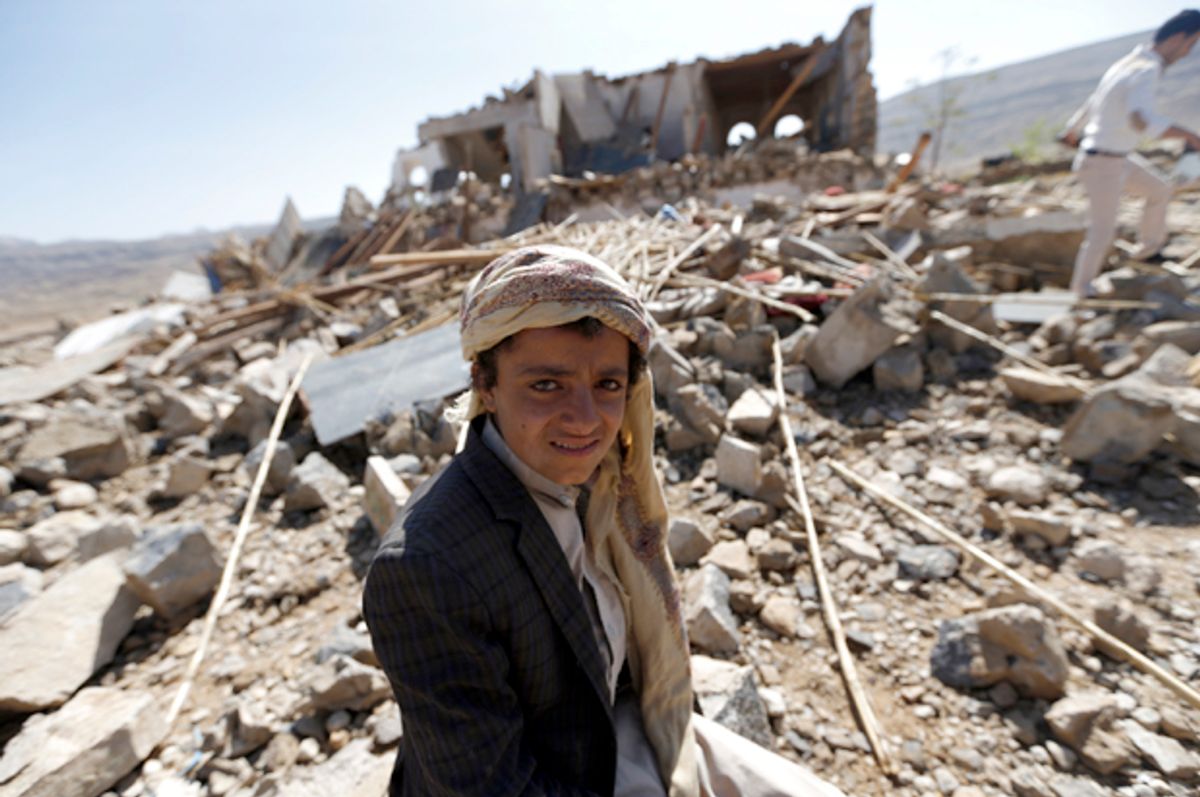With over 390,000 cases of cholera in the last three months, Yemen is facing the world's worst outbreak of the disease ever recorded in a single year, according to the world-wide development organization Oxfam. The rapid spreading of cholera has already killed almost 2,000 people and is only the latest issue plaguing the poverty-stricken, war-torn nation.
"In terms of obstacles we face, a lot. Yemen is a really difficult place to deliver," Scott Paul, Oxfam America’s senior humanitarian policy expert told Salon. "We are luckily saving lives, and that's largely down to the fact that we are known in communities."
Oxfam has had a presence in Yemen for over 30 years "focused on helping people buy food, usually through cash or vouchers, and ensuring that people have access to clean and safe water," Paul told Salon. "Since this stage of the conflict began in 2015, we've launched a humanitarian response that's now reached about 1.1 million people in Yemen."
Paul explained that "the critical factor for being able to deliver life-saving assistance" is if you are accepted by the community. "Thankfully we have very, very strong community acceptance in Yemen." Paul said that while there is a scaled response to the cholera epidemic, it's still an underfunded response.
"There's much more bad news than good news," he told Salon. "Public systems still aren't functioning, public sector employees still aren't being paid, the health ministry's are working valiantly, but without support. Imports still aren't coming in at the rate we'd like to see, which means the de facto blockade is still in place, and the economy is still struggling."
Yemen's rainy season is between the months of July and September, which will only worsen sanitary conditions, and exacerbate the outbreak of cholera further. "On top of all of that, the outbreak is now in all 21 governorates, and what the rainy season means is that water sources are much more likely to be contaminated by waste industries," Paul explained.
"International agencies are overwhelmed by the scale of the outbreak; only 45 percent of health services are functioning and essential doctors, nurses and other public servants who provide clean water, treat sewage and collect garbage have not been paid for nine months,"Oxfam’s Yemen country director Shane Stevenson said. "It is imperative public service workers are paid immediately and incredulous that these funds are available but are not being released."
Saudi Arabia has led a coalition air campaign that has waged war in Yemen since March 2015, after a takeover from the Houthi rebels. The U.S. and the U.K. have staunchly supported the Saudi-led coalition which has resulted in a war that has killed over 10,000 civilians, indiscriminate airstrikes and a de facto blockade imposed by Saudi Arabia that has contributed to the millions left on the brink of starvation.
The blockade "completely undercuts any effort to revitalize the economy, so people just don't have an income," Paul explained. "They [Yemenis] can't pay for food, they're chronically malnourished, they're immune systems are weakened, they also can't pay for water. Before the conflict, a lot of the way Yemenis were able to drink clean and safe water is by buying privatized water, and so now that's much more difficult when you're not earning an income."
Almost 2,000 people have died from suspected cases of cholera since late April. "It is feared that the total number of people infected could eventually rise to over 600,000, making it one of the largest outbreak since records began in 1949," according to Oxfam.
"The breakdown of the health system means that for a lot of people who want to get treatment, they can't go to the local health clinic because most health facilities in Yemen aren't functioning anymore," Paul told Salon. "So they have to make the decision to sacrifice whatever livelihood they have to travel a town over, two towns over, sometimes a governorate away, to get treatment for themselves or for a family member."
For people barely earning any income — if at all — Paul said, "that's an impossible choice for someone."

Shares